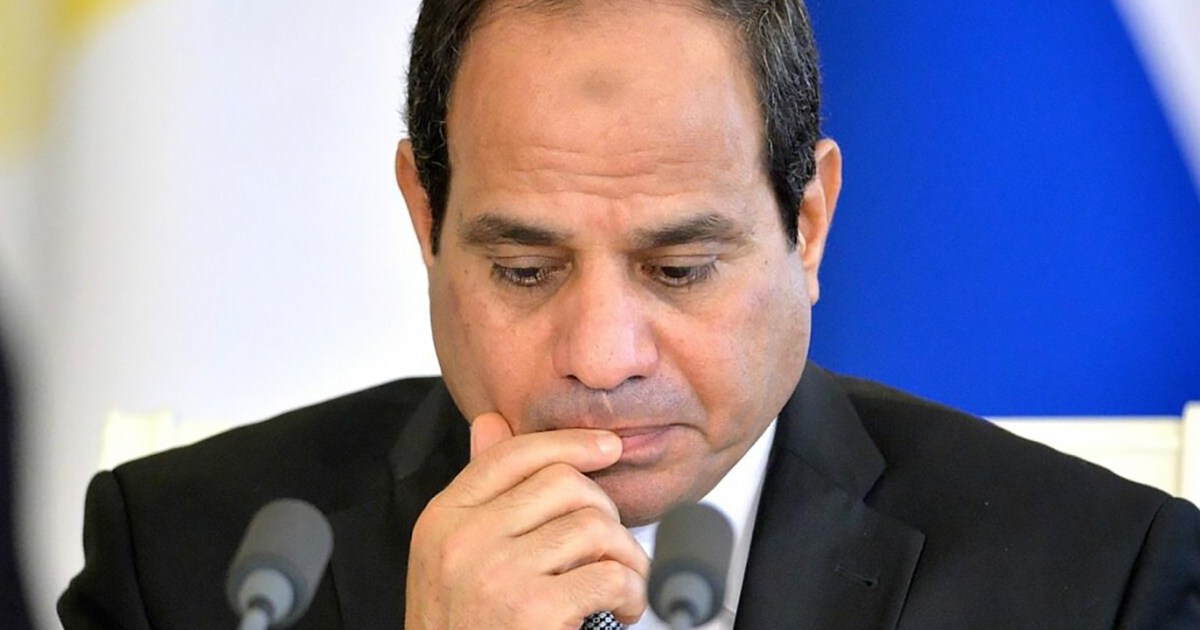Many taboos were broken in Egypt, and red lines were crossed during the past six years of the rule of Egyptian President Abdel-Fattah El-Sisi, and it was not allowed to harm them, and slogans have always been frequented by regimes or preserved for decades.
The previous regimes were keen on slogans where approaching them was prohibited, such as "there is no harm to the people inside," "no harm to support", "women are a red line", and "do not waste the waters of the Nile", but these taboos have been broken and exceeded.
After six years of Al-Sisi's rule, there is no trace of these statements, and they are from the past. Rather, it came to the fact that Al-Sisi considered these red lines responsible for the country’s delay due to the regime’s fear of approaching and correcting it.
Elimination of subsidies,
the "low-income group" is the largest in Egypt, where the number of poor people increased from 26.3 million to 32.5 in 2018, and the National Planning Institute (government) expects their number to increase to 40.1 million. Because of the repercussions of the recent economic crisis, an increase of 12.5 million.
Sisi governments have included low-income people within the taxpayer system; Where the owners of incomes are subject to taxes more than eight thousand pounds (five hundred dollars) annually, before the government raises them to 15 thousand pounds (about nine hundred dollars), which is still a small amount, as it is assumed that the owner is exempt from paying any taxes.
With regard to support, the Sisi regime eliminated subsidies from electricity entirely in stages, until it reached zero in the 2020/2021 budget, after it was 33.4 billion pounds in the 2014/2015 budget.
The subsidy was almost completely eliminated on fuel, and in the budget of 2020/2021, it reached only 28 billion pounds, after it was estimated that subsidizing petroleum products amounted to 134 billion pounds in the 2013/2014 budget.
Sharif Othman, a specialist in financial and economic affairs at the Washington Analytica Corporation, stressed that the lifting of subsidies and prejudice to low-income people was aimed at providing revenues for the general budget of the limited state, but this greatly affected that category.
He revealed in an interview with Al-Jazeera Net that the International Monetary Fund was stipulating an increase in social spending reaching the lower-income classes, but unfortunately the benefit was not met.
"When I spoke to one of the IMF executives responsible for the loan, I asked him: Did you review Egypt's commitment to social spending, just as you reviewed the issue of liberalizing the exchange rate and raising subsidies?" He replied, "It is not our job."
Nile Water
With regard to the Nile water file, Egypt has lost all negotiating rounds with the Ethiopian side since Sisi recognized Ethiopia's right to complete the construction of the Renaissance Dam, as Egypt, Sudan, and Ethiopia signed in the Sudanese capital Khartoum a document of the principles of the Renaissance Dam, in March 2015.
The document was devoid of any Ethiopian obligations or pledges that guarantee Egypt's historical water and rights, which amount to 55 billion cubic meters, and all negotiations between the two sides subsequently failed to reach a final agreement on the rules for filling and operating the Renaissance Dam.
The researcher in environmental engineering and water treatment, Dr. Omar Al-Haddad, considered that "Al-Sisi’s signature of the Declaration of Principles agreement made the agreement on the Renaissance Dam an issue subject to the agreement between the governments of the three countries, and constituted a departure from the old agreements sponsored by the British authorities, which keep Egypt a minimum amount of water sufficient to grow All of its agricultural lands and cover its water needs without problems. "
In his talk to Al-Jazeera Net, he stressed that before the era of Sisi, even in the days of the late President Hosni Mubarak, the issue of Egypt's water rights was an issue outside the scope of negotiation from the ground, indicating that now it is now acceptable to the Egyptian government that Egypt lose its rights in the waters of the Nile, in violation International laws that prevent upstream countries from controlling water in a way that harms downstream countries.
The woman is a red line
. With regard to the file of rights and freedoms, the Sisi regime has crossed the issue of imprisonment and torture of thousands of detainees, young men, men and elderly, to prolong the matter for children, girls and women of various sects and stripes, something that was not usual or politically or socially acceptable.
Last July, the “We Register” human rights platform from July 3, 2013 to June 31, documented the arrest of 2762 women, of whom 125 were still in custody, and 396 cases of enforced disappearance, 15 of whom are still in disappearance until Last July 15. "
The platform's report also monitored at least 312 extra-judicial killings of women, which ranged from direct or indiscriminate killing while participating in demonstrations, as well as indiscriminate air and artillery shelling of residential neighborhoods in North Sinai Governorate.
The Egyptian file officer at Human Rights Watch, Salma Ashraf, strongly condemned the Sisi regime's violation of red lines in dealing with women, saying, "For the first time, the security and judicial authorities in Egypt violate taboo regarding women, as they arrested hundreds and sent them to prison and received severe and life sentences." ".
In statements to Al-Jazeera Net, she clarified that the woman was subjected to torture, abuse, and enforced disappearance for months, and was raped in Al-Sisi prisons, in a first of its kind, including mothers, wives and elderly people, and denied medical care and visits, and went on hunger strike.

